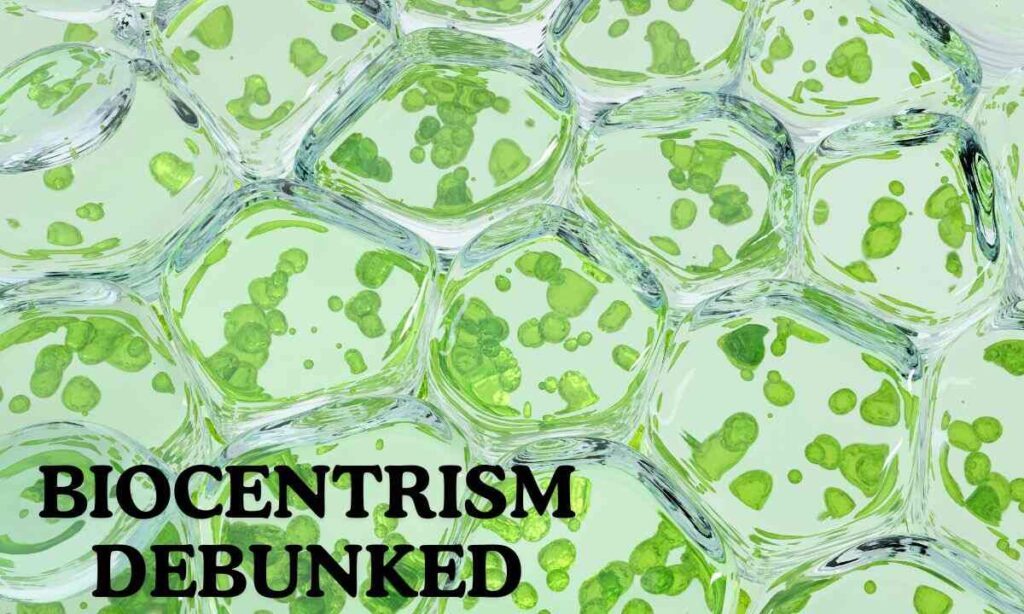biocentrism Debunked is an interesting degree that has gained traction in the fields of philosophy and science. It holds that life—specifically, human consciousness—is essential to the universe. In spite of its appeal, the scientific community has carefully investigated and questioned biocentrism. In order to determine if biocentrism remains an attractive concept or dissolves under careful scrutiny, we will examine the fundamentals of the theory as well as the arguments made against it in this article.
Understanding Biocentrism Debunked
Essentially, biocentrism holds that life and awareness are essential to the universe and that the galaxy gets its shape and purpose from the existence and experience of living things. The natural world would lack shape and substance, according to supporters of biocentrism debunked, if there was no awareness to experience it. This idea gives people and other living things an essential place in planet Earth and gives them a great deal of significance within the structure of the universe.
The Philosophical Roots of Biocentrism
The idea that all living things have equal significance in the universe is the conceptual basis of biocentrism. According to this theory, reality is largely shaped by life, especially human awareness. In biocentrism debunked, all life is valued, including plants and animals, as opposed to traditional approaches that only consider people. This viewpoint offers a more open-minded explanation of life that casts doubt on the notion that humans are better. As a whole, biocentrism encourages a greater understanding of the diversity and complexity of life on Earth by challenging us to acknowledge and value the mutual support of all living things.
Critiques of Biocentrism Examining Its Foundational Assumptions
Fundamental beliefs about the natural world and mind are pressed by those who criticize biocentrism. Some believe there is insufficient scientific evidence to support the theory that life is the basis of reality. Despite the fact they believe that all living things should be valued, they suggest that it is optimistic to attribute awareness simply to the formation and organization of the the sky. As others have noted, in order to suit its narrative, biocentrism debunked simplifies difficult theoretical concepts like quantum physics. Critics also claim that biocentrism can overlook useful factors, such as empirically supported environmental protection plans. Ultimately, these criticisms highlight the necessity of investigating the essence of life with a balanced perspective that takes into account empirical data and critical thought.
Scientific Challenges to Biocentrism Debunked Arguments
The main scientific challenges of biocentrism center on it’s unclear data and weak speculations. The idea that awareness shapes the cosmos is not supported by any empirical proof, which is a major point of rejection. Although awareness is necessary for the human experience, scientists believe that consciousness does not always change the basic rules of nature. Furthermore, attempts by biocentrism to combine with quantum mechanics are frequently protested for presenting complex scientific ideas. Biocentrism is a theoretical theory that has not been scientifically verified due to the lack of strong empirical proof to back up its claims. This has led to calls for a more research-based approach to understanding the universe.
Philosophical Rebuttals Dissecting Biocentric Ideologies
Philosophical challenges analyze and destroy biocentric ideologies by raising issues with their underlying assumptions. Critics contend that despite that biocentrism encourages equality amongst living things, there is little scientific support for the claim that awareness changes reality. They believe that awareness might not be the primary force guiding the natural world, but rather an outcome of biological processes. Furthermore, other elements that add to the complexity of existence, such as physical laws and environmental dynamics, are ignored by biocentrism debunked concentration on the significance of life. Through a critical analysis of these philosophical foundations, critics direct attention to the need for a more complex, critically based understanding of awareness and its place in the larger universe.

Empirical Evidence Contrary to Biocentrism A Critical Analysis
Biocentrism’s core claims are carefully examined by empirical data that opposes them. The argument made by scientists that biocentrism debunked—which holds that awareness is the basis of reality—is not well-supported by scientific research. There isn’t any solid proof connecting awareness to the basic principles of the world from research in quantum physics and neurology. Further evidence that the cosmos functions without conscious perception comes from studies of inorganic systems like heavenly bodies and physical forces. This casts doubt on the basic principles of biocentrism and emphasizes the importance of empirical study in figuring out what reality is about.
Environmental Ethics Beyond Biocentrism Alternative Perspectives
Examine different viewpoints on our relationship with nature in environmental ethics beyond biocentrism. Other frameworks provide supplementary insights, whereas biocentrism highlights the fundamental value of all living things. For example, ecocentrism highlights the interconnection of living and nonliving components while taking an overall view of ecosystems. A broad approach that acknowledges the intrinsic value of every component of the ecosystem is supported by deep ecology. Ecology also values non-human life while acknowledging that humans have a duty to protect the environment. By accepting these many viewpoints, we may create stronger ethical frameworks that handle all aspects of environmental sustainability and advance harmony between people and the natural world.
Interrogating Biocentric Worldviews Implications for Conservation Efforts
Examining worldviews that are biocentric provides effects on conservation initiatives. Although biocentrism encourages respect for all living species, its value in conservation is contested. Some who oppose awareness claim that focusing just on it ignores the larger ecological processes that are vital to biodiversity. Strategies for effective conservation must look beyond anthropocentric or biocentric perspectives to take into account species interactions, habitat protection, and ecosystem health. Conservation strategies that are more comprehensive might result from the integration of ethical issues with scientific study. In order to ensure the long-term survival of a variety of life forms on Earth, conservation initiatives can more effectively address these problems of habitat loss, climate change, and biodiversity decrease by taking into account the complex structures of life and the relationship of ecosystems.
Biocentrism Debunked in Contemporary Discourse Recent Developments
Discourse debunking biocentrism highlights new advances that call into question its viability. Opponents point out that there isn’t any scientific proof to back up biocentric claims especially the ones about awareness creating the universe. The philosophical basis of biocentrism has been called into question as recent developments in quantum physics and neurology have not been able to validate these claims. Furthermore, debates in scholarly and scientific communities spotlight more and more how crucial empirical research and reasoning based on proof are to comprehending the natural world. With a rising understanding of the necessity for thorough investigation and critical analysis of its principles in modern conversations about consciousness and the universe, biocentrism’s appeal in everyday discourse may be declining as a result.
Moving Forward Reconciling Biocentric Thought Emerging Paradigms
It is necessary to balance the new paradigms with biocentric ideas in order to go forward. Scientific knowledge grounded on facts is necessary for resolving biocentrism debunked, which emphasizes the value of all living forms. Investigating possible connections among systems theory, ecology, and consciousness studies is part of it. We may become more fully aware of how everything in the cosmos and life are interconnected by combining knowledge from several fields of study. While taking a critical stance against supported claims, this method promotes receptivity to new ideas. The chance to advance our knowledge of perception and its influence on how we interact with the natural world ultimately depends on harmonizing biocentric thinking with new paradigms.
Conclusion
In conclusion, biocentrism debunked ultimately does not stand up to scientific examination, despite the fact that it may present an interesting viewpoint on the cosmos. Biocentrism fails to establish itself as a reliable scientific theory because it lacks empirical support and is overflowing with logical errors. It is crucial that we continue to be both perceptive and open-minded in our quest to comprehend the universe, acknowledging the shortcomings of ideas like biocentrism while still pursuing the mysteries that yet are available.
Also, Read More Info :- Bestadvise4u.com News Latest Updates & Expert Guidance




